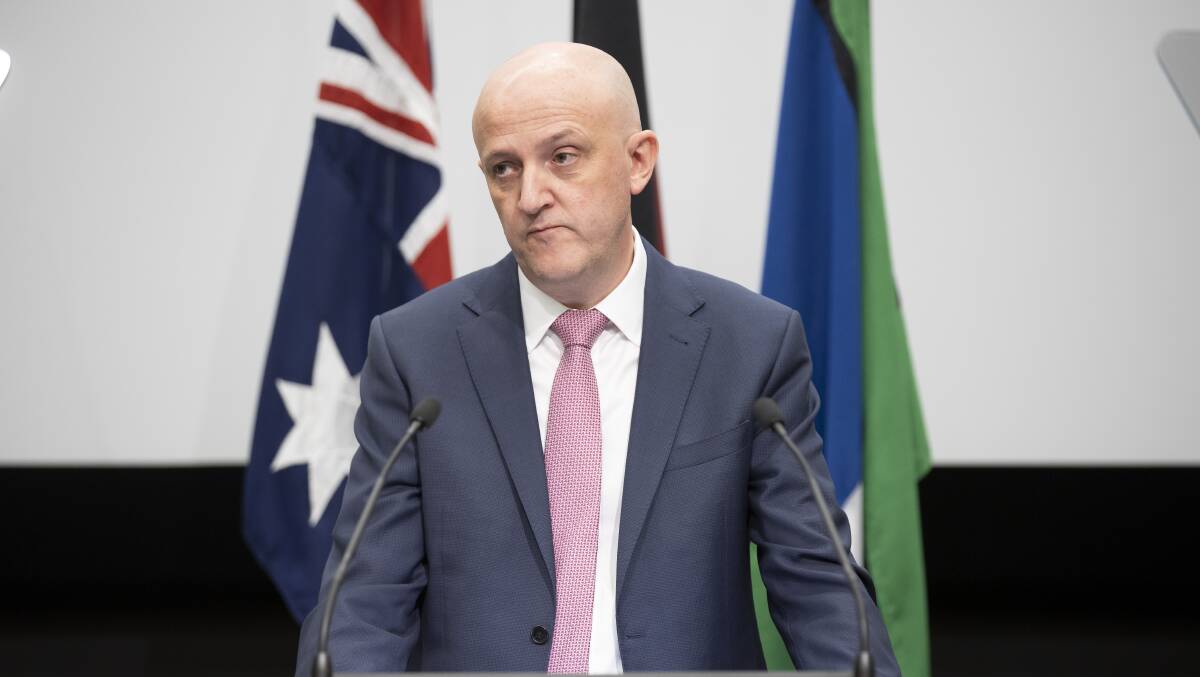Right-wing extremists are meeting in suburban Australia to salute Nazi flags, inspect weapons and train in combat, the country's top spy has told leaders in Canberra.
Subscribe now for unlimited access.
or signup to continue reading

The "unprecedented" threats of foreign espionage, interference, Islamic and right-wing terror have been laid out in a landmark speech by director-general of the Australian Security Intelligence Organisation Mike Burgess.
In the domestic spy agency's first ever "annual threat assessment" speech, Mr Burgess warned foreign agents seeking to interfere in Australia they would be "hunted" by Australian agencies.
Part of the organisation's bid to be more transparent about its role, Mr Burgess said he wanted to bring "sunlight and transparency" and welcomed public debate about the organisation's powers.
Taking care not to name specific countries, Mr Burgess said "Australia is currently the target of sophisticated and persistent espionage and foreign interference activities from a range of nations".
Speaking on both counter-terror and counter-intelligence operations, Mr Burgess said while the agency monitored Islamic extremists, developments within extreme right-wing groups were also concerning.
"In Australia the extreme right-wing threat is real and growing," he said.
"In suburbs around Australia, small cells regularly meet to salute Nazi flags, inspect weapons, train in combat and share their hateful ideology."
An Australian was stopped from leaving the country earlier this year to go and fight with an extremist group on a foreign battlefield, he revealed.
"We expect such groups will remain an enduring threat, making use of online propaganda to spread their messages of hate."
Foreign intelligence services had even threatened and intimidated Australians within the country's borders.
"I can reveal that a foreign intelligence service sent a 'sleeper' agent to Australia. The agent lay dormant for many years, quietly building community and business links, all the while secretly maintaining contact with his offshore handlers.
"The agent started feeding his spymasters information about Australia-based expatriate dissidents, which directly led to harassment of the dissidents in Australia and their relatives overseas."
He had also provided logistical support for other spies who travelled to Australia.
Spies had travelled to Australia in order to set up hacking infrastructure to target computers containing sensitive information, and visiting scientists and academics had deepened their involvement in university life to gather intelligence and hostile intelligence services, Mr Burgess said.
There are more foreign intelligence agents and their proxies working in Australia now than at the height of the Cold War, the spy boss said.
"Espionage and foreign interference are affecting parts of the community that they did not touch during the Cold War."
The goal of foreign agents has also changed, now aiming not just to collect information but to "engineer fundamental shifts in Australia's position in the world".
The address is made at a time when Chinese interference in Australia has been under scrutiny, the suspect in hacks on the Australian National University and Parliament House's computer systems. There have also been reports of Chinese espionage activities focused on Australia.
Mr Burgess said almost every sector of the community was a target for foreign interference, singling out parliamentarians and their staff, public servants, the media, business leaders and academics.
Late last year the government announced ASIO would get an $88 million injection to form a Counter Foreign Interference Task Force, which Mr Burgess said had already "caused discomfort" for foreign intelligence services. He signalled the possibility of prosecutions of foreign agents and while refusing to put a timeframe on when a prosecution may be likely said he was "confident" the public would see action in the area.
The address was also a rallying cry to ensure ASIO has not only the powers it needs but the funding, to keep up with emerging threats.
"As an organisation we have a lot of work ahead of us to ensure that we can meet the challenges of technology and data that are impacting our operations."
ASIO also used its annual report for 2018-19 to call for extra funds, warning the resources available weren't keeping up with increased levels of foreign interference and espionage.


